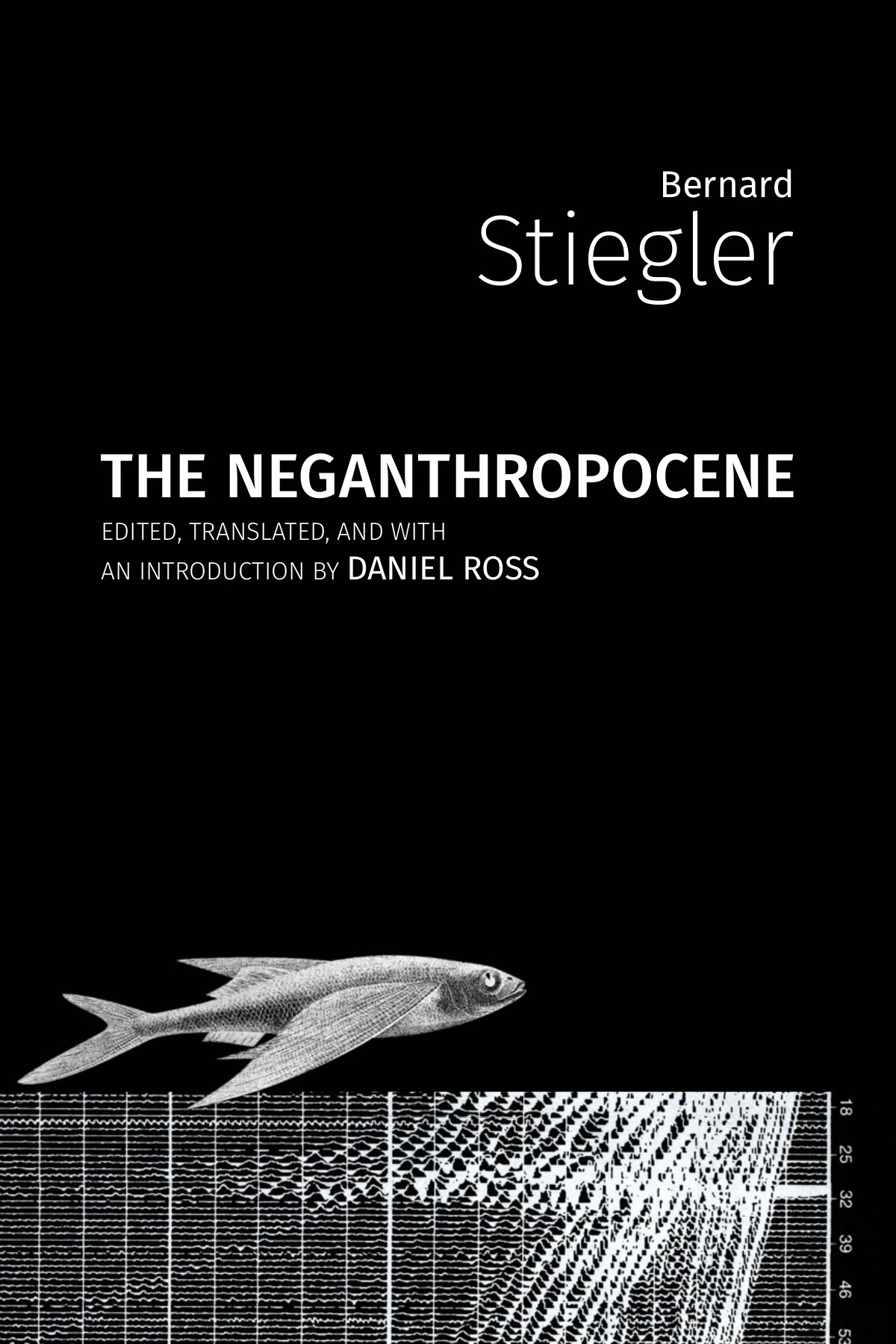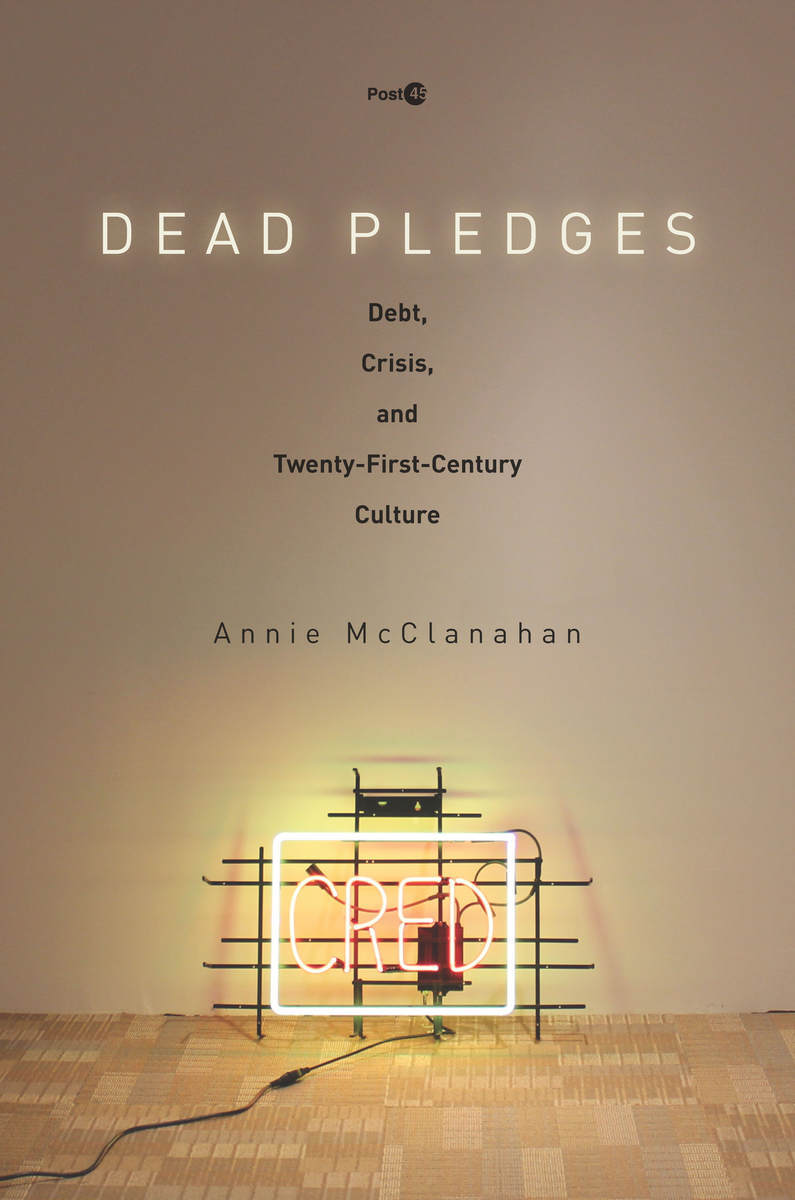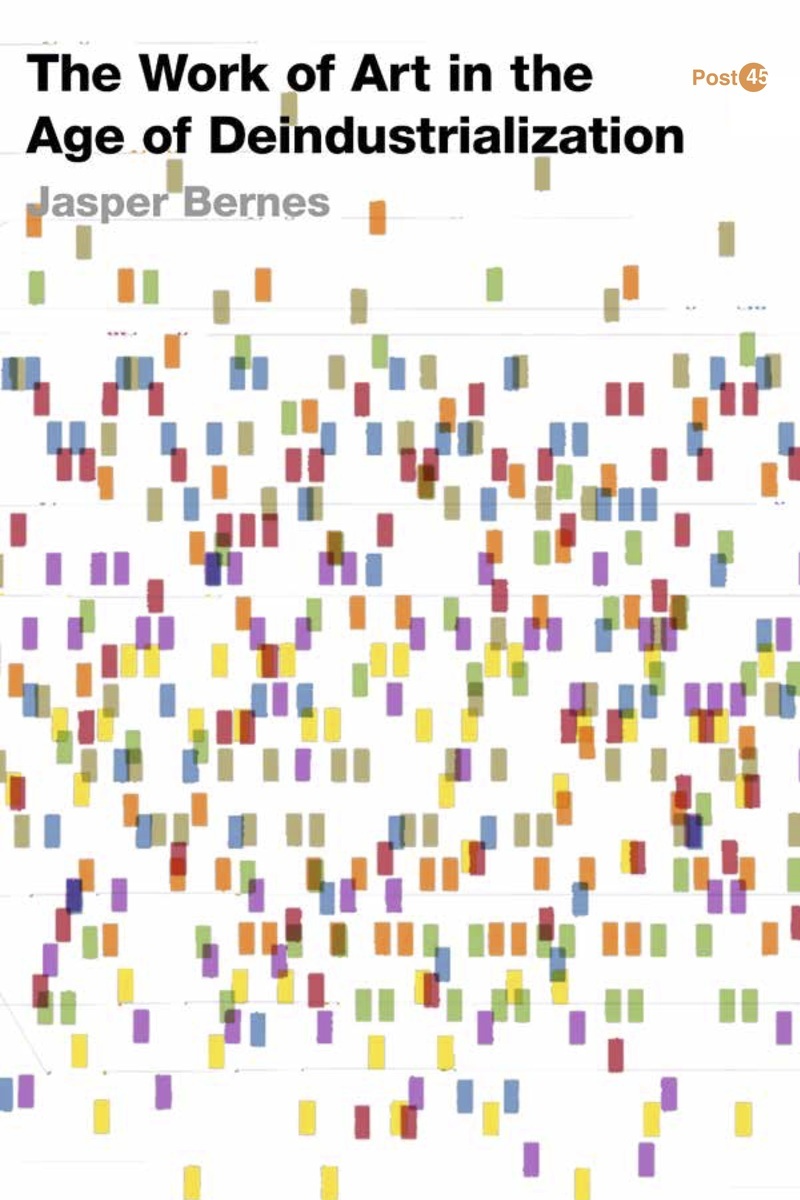Bernard Stiegler: The Neganthropocene (2018)
Filed under book | Tags: · anthropocene, capitalism, cinema, technics, technology, theory

“As we drift past tipping points that put future biota at risk, while a post-truth regime institutes the denial of ‘climate change’ (as fake news), and as Silicon Valley assistants snatch decision and memory, and as gene-editing and a financially-engineered bifurcation advances over the rising hum of extinction events and the innumerable toxins and conceptual opiates that Anthropocene Talk fascinated itself with—in short, as ‘the Anthropocene’ discloses itself as a dead-end trap—Bernard Stiegler here produces the first counter-strike and moves beyond the entropic vortex and the mnemonically stripped Last Man socius feeding the vortex.
In the essays and lectures here titled Neganthropocene, Stiegler opens an entirely new front moving beyond the dead-end “banality” of the Anthropocene. Stiegler stakes out a battleplan to proceed beyond, indeed shrugging off, the fulfillment of nihilism that the era of climate chaos ushers in. Understood as the reinscription of philosophical, economic, anthropological and political concepts within a renewed thought of entropy and negentropy, Stiegler’s ‘Neganthropocene’ pursues encounters with Alfred North Whitehead, Jacques Derrida, Gilbert Simondon, Peter Sloterdijk, Karl Marx, Benjamin Bratton, and others in its address of a wide array of contemporary technics: cinema, automation, neurotechnology, platform capitalism, digital governance and terrorism. This is a work that will need be digested by all critical laborers who have invoked the Anthropocene in bemused, snarky, or pedagogic terms, only to find themselves having gone for the click-bait of the term itself—since even those who do not risk definition in and by the greater entropy.”
Edited, translated, and with an introduction by Daniel Ross
Publisher Open Humanities Press, London, 2018
CCC2: Irreversibility series
Creative Commons BY-SA 4.0 License
ISBN 9781785420481
345 pages
Annie McClanahan: Dead Pledges: Debt, Crisis, and Twenty-First-Century Culture (2016)
Filed under book | Tags: · affect, art criticism, capitalism, debt, economics, finance, financial crisis, horror, literary criticism, mediation, mortgage, photography, property

“Dead Pledges is the first book to explore the ways that U.S. culture—from novels and poems to photojournalism and horror movies—has responded to the collapse of the financialized consumer credit economy in 2008. Connecting debt theory to questions of cultural form, this book argues that artists, filmmakers, and writers have re-imagined what it means to owe and to own in a period when debt is what makes our economic lives possible. Encompassing both popular entertainment and avant-garde art, the post-crisis productions examined here help to map the landscape of contemporary debt: from foreclosure to credit scoring, student debt to securitized risk, microeconomic theory to anti-eviction activism. A searing critique of the ideology of debt, Dead Pledges dismantles the discourse of moral obligation so often invoked to make us repay. Debt is no longer a source of economic credibility, it contends, but a system of dispossession that threatens the basic fabric of social life.”
Publisher Stanford University Press, 2016
Post ’45 series
ISBN 9780804799058, 0804799059
ix+235 pages
Reviews: Brian Whitener (The New Inquiry, 2017), Sofia Cutler (LA Review of Books, 2017), Julian Murphet (Affirmations, 2017), Davis Smith-Brecheisen (Mediations, 2017), Arne De Boever (boundary2, 2017), Laura Finch (Journal of Cultural Economy, 2018).
Comment (0)Jasper Bernes: The Work of Art in the Age of Deindustrialization (2017)
Filed under book | Tags: · aesthetics, avant-garde, capitalism, cybernetics, information, labour, literary criticism, marxism, poetry, postindustrial, productivity, taylorism, technology, work

“A novel account of the relationship between postindustrial capitalism and postmodern culture, this book looks at American poetry and art of the last fifty years in light of the massive changes in people’s working lives. Over the last few decades, we have seen the shift from an economy based on the production of goods to one based on the provision of services, the entry of large numbers of women into the workforce, and the emergence of new digital technologies that have transformed the way people work. The Work of Art in the Age of Deindustrialization argues that art and literature not only reflected the transformation of the workplace but anticipated and may have contributed to it as well, providing some of the terms through which resistance to labor was expressed. As firms continue to tout creativity and to reorganize in response to this resistance, they increasingly rely on models of labor that derive from values and ideas found in the experimental poetry and conceptual art of decades past.”
Publisher Stanford University Press, 2017
Post ’45 series
ISBN 9780804796415, 0804796416
viii+231 pages
Reviews: Stevphen Shukaitis (Marx & Philosophy Review of Books, 2017), Julian Murphet (Affirmations, 2017), Vince Carducci (Public Seminar, 2017).
Comment (0)
